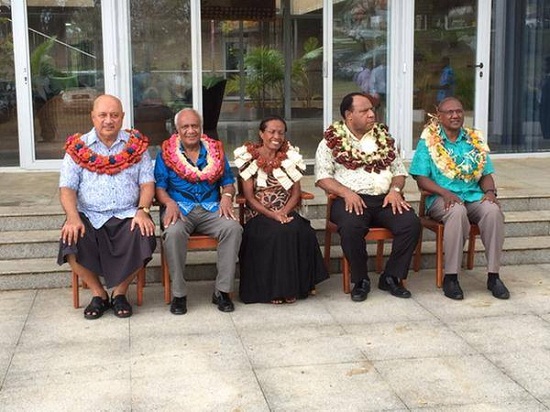
The Melanesian Spearhead Group (MSG) is finalising a private sector development strategy that will be presented for adoption by MSG Ministers in November this year.
The report is being compiled by Fiji’s former ambassador to the United States and former Fiji Trade and Investment Board CEO Jesoni Vitusagavulu.
After almost two months of consultations, Vitusagavulu presented the draft of the report today to the MSG Heads of Investment agencies meeting in Nadi.
“There are more to entrepreneurship or private sector than just those people in the city so the focus of this strategy is to try and incentivise those private sector, people that have been participating in the work of increase investment and growth in the private sector up until now,” said MSG Private Sector Development Consultant, Jesoni Vitusagavulu.
The study has three themes – overcoming resistance and roadblocks for reforms; unleashing entrepreneurship in rural economies; and pursuing a climate change-responsible strategy.
“We have that strategy that we will develop will really encourage them to expand their enterprises for those in the informal sector they can become formal participants and excess some of their assistance that they’re not currently getting now on account of their status,” Vitusagavulu said.
The MSG Private Sector Development Strategy was funded by the European Union through the Pacific Integration Technical Assistance Project.
Meanwhile, the heads of investment promotion agencies of the Melanesian Spearhead Group countries, Fiji, Papua New Guinea, Solomon Islands and Vanuatu met in Nadi to discuss private sector policy issues.
One of the key issues discussed was the private sector development priorities of the Melanesian Spearhead Group in line with the goals of the European Union-funded Pacific Integration Technical Assistance Project
Investment promotion CEOs and officials from MSG countries discussed a number of key issues – and looked at ways to strengthen relationships to support sustained private investment growth.
High on the agenda was a private sector development strategy to encourage investment that would create jobs for the thousands of school-leavers who come out of the MSG countries every year.
“One piece of data that we’ve got to be mindful of is at the end of every school year, November each year at least 100,000 of our people leave school and they’re looking for employment and a very small proportion of that 100,000 they find jobs in the formal sector, part of them will find themselves in the informal sector,” said MSG, Private Sector Development Advisor, Henry Sanday.
MSG countries are currently negotiating a more comprehensive trade agreement that will include Trade in Services and Labour mobility.
But without a strong private sector – the revised MSG trade agreement, set to be adopted in November, would be ineffective.
“Without the engagement of the private sector the best trade agreement will be meaningless. So it’s the private sector that is the target group for such trade agreements to enhance trading intra MSG trading between Fiji and the rest of the countries and the rest of the countries with Fiji. And the private sector they play a crucial role in the economy,” Sanday said.
Following the meeting of investment promotion agencies , trade and economic officials will meet today before the MSG Trade Ministers Meeting on Monday.
